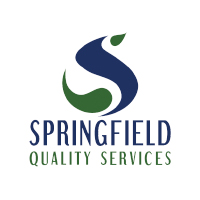Springfield Quality Services is your preferred choice for mold inspection and air quality testing based out of Carthage, MO, and available nationally.
Most Frequently Asked Questions About Our Air Quality Testing
What is a mold inspector?
A mold inspector is an indoor environment professional (IEP) who is qualified by knowledge, skill, education, training certification or experience to perform an “assessment” of the fungal ecology of structures, systems and contents at the job site, create a sampling strategy, sample the indoor environment, submit to appropriate laboratory or individual to interpret laboratory data, determine Condition 1, 2, and 3, and verify the return of the structure, systems, contents to Condition 1 normal fungal ecology. (ANSI)/(IICRC S520-2015 Standard For Professional Mold Remediation p63)
Why do I need an independent IEP?
It is preferable that the IEP be an unbiased resource. An IEP engaged to perform pre-remediation assessment or post-remediation verification should be independent of the remediator. If the IEP conducting any activity such assessment or post-remediation verification is not independent from the remediator, they should disclose in writing to the client that are deviating from the Standard. In some jurisdictions, the law may require that the inspection and assessment function be performed by an individual or entity independent of the remediator. If there are complexities, complications, or conflicts, a remediator may need to request additional input or guidance from the IEP. ANSI/IICRC S520-2015 Standard For Professional Mold Remediation p63)
What happens after the inspection?
We will provide you a full color report in 2-3 business days outlining the problem and remediation plan. You can share this report with a remediation company of your choice.
What happens after remediation?
For an additional fee, we return to your home or business and conduct a post-assessment inspection to determine if the remediation project has been successful. If it is successful, we will write a one-page report indicating that your mold remediation was successful, and your structure has been returned to a normal fungal ecology. If it is not successful and additional work is required, we ask the remediation team to make the necessary changes. The second post-assessment fee is billed to the remediation company.
What remediation companies do you work with?
We only partner with IICRC certified remediation companies in your area.
Are you a certified IEP?
Yes. All certifications are shown upon request.
Will indoor mold make me sick?
Mold affects everyone differently. In most scenarios, the female occupant seems to be the most affected. There is no species of mold that is safe when inhaled. Mold has been known to affect people with respiratory problems, allergies or compromised immune systems. Symptoms of mold exposure may include headache, sore throat, runny nose, coughing, sneezing, watery eyes, and fatigue. In those with asthma, asthma attacks occur. In those with impaired immune systems, serious infection can occur.
Do you test for mold mycotoxins?
Yes. We use the Environmental Mold and Mycotoxin Assessment (EMMA)
What is the InstaScope?
The InstaScope is advanced AI technology originally developed by the military to identify airborne anthrax. The technology is now used to “see” the indoor air quality in real-time. The InstaScope can see the overall mold spore concentration, dangerous particles, pollen, and virus/bacteria load.
Will Insurance pay for my mold inspection and remediation?
If you have mold coverage, we generally see the insurance company pay for both inspection and remediation. In most cases, the remediation coverage has a dollar limit. We advise you to speak with your insurance company to determine your coverage.
Do you have additional questions? Connect with us today!
Helpful Resources
Dr. Fungus: An Educational Website of the Mycoses Study Group Education and Research Consortium (MSGERC)
CDC: General Information about Mold
NIH: National Institute of Environmental Health Sciences on Mold
Moldpedia: What is Mold?
AerIndustries: 12 Common Types of Mold in Homes
ConsumerNotice.org: Indoor Air Pollution Guide
Crane Environmental Services: Mold Descriptions
EPA: Volatile Organic Compounds Impact on Indoor Air Quality
AIHA: Mold Resource Center
InstaScope: the science behind InstaScope testing
What is Mycotoxins: the ultimate guide to mycotoxins and what makes mold toxic.
Asbestos Guide for Homeowners: A guide to what you need to know about Asbestos in your home and the process for removal.
